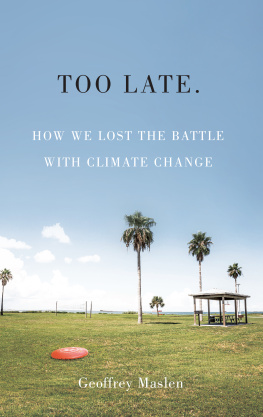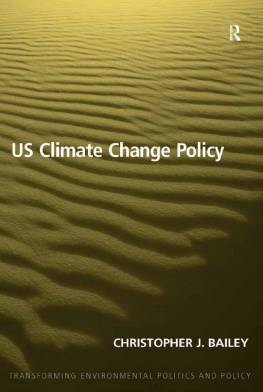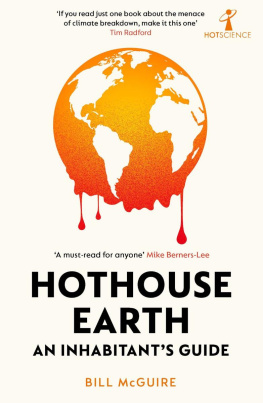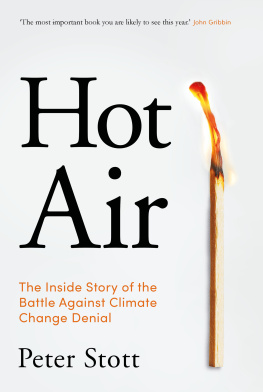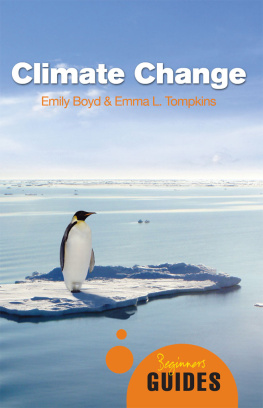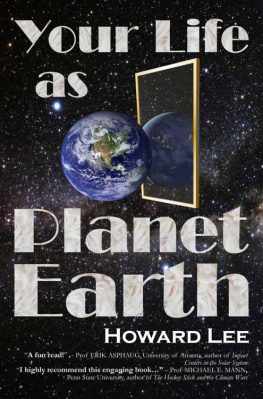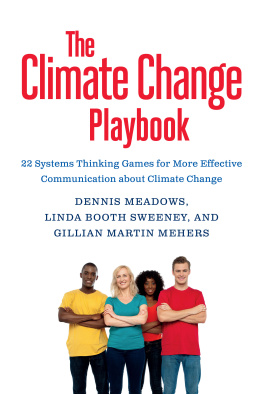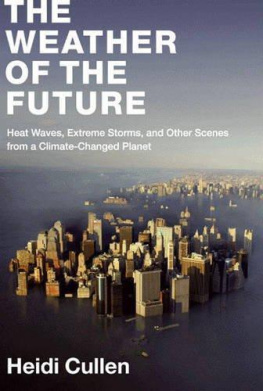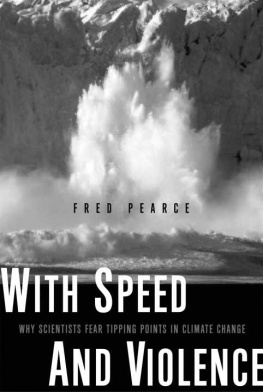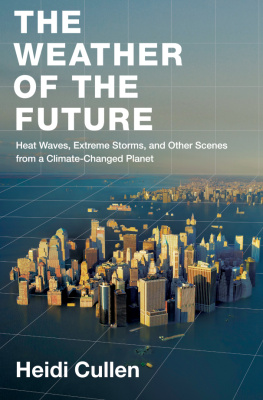We must face up to an inescapable reality: the challenges of sustainability simply overwhelm the adequacy of our responses. With some honourable exceptions, our responses are too few, too little and too late.
Kofi A. Annan
Former Secretary-General of the United Nations
Contents
D AWN ON Vivonne Bay. The white beach stretches round in a great arc, enclosing the rolling waves that rush forward, crashing against the shore. A pair of tiny hooded plovers dart among the breakers while some sea eagles soar above. Two fur seals surge out of the sea and begin cavorting in the shallows. Out on the ocean, a pod of dolphins pop out of the water like children playing peekaboo chasey before suddenly surfing a big wave towards me. I am a lone human on a vast expanse of sand with only my footprints to show that a Crusoe has passed this way. Looking out over a cerulean sea with its white horses galloping across the surface, I could be the last of my kind. Except that up behind the limestone cliffs an expanding rash of holiday houses is thrusting its way through the scrubby landscape.
Looking out over a cerulean sea with its white horses galloping across the surface, I could be the last of my kind.
This is Kangaroo Island, the third largest island in Australia. Only 150 kilometres long and 90 kilometres wide, it is exuberantly rich in wildlife. Largely untouched national parks and wilderness areas occupy much of the island, which is home to a wide array of plants, birds, snakes and marsupials on the land, along with bottle-nosed dolphins, sea lions, fur seals and huge shoals of fish in the marine reserves around the coasts. Nearly 5000 people call Kangaroo Island home; another 140,000 arrive each year to experience the islands peaceful beauty, and to marvel at the spectacular scenery. To the visitor, its like stepping back in time, to an Australia as it once was: the existence of protected zones for native creatures has triggered a growing conservation ethos among the islanders. Many are objecting loudly to further land clearing for sheep farming and the rapid spread of eucalyptus tree plantations. Even here, in this place so evocative of an untouched past, paradise is under threat.
Return to reality
Soon, it is time for us to leave this microcosm. After taking the ferry back to the mainland, we step ashore to the twenty-first century: a crowded world of houses and cars and trucks and people by the millions. Yet all of us face the same grim future where the lives of humans, birds, animals, insects and plants are under increasing threat because of rapid changes to the climate. In the 3.7 billionyear history of life on this planet, there have been five mass extinctions where nearly all living things were wiped out. The fifth occurred some sixty-five million years ago when almost all the dinosaurs, along with a myriad of other animals and plants, were extinguished by a 10 kilometrewide asteroid striking the Yucatan Peninsula in Mexico.
Now, Earths sixth mass extinction is upon us, and species are disappearing faster than at any time since that last great cataclysm. Biologists say that reptiles have been vanishing twenty-four times faster, birds thirty-four times faster, mammals and fishes fifty-five times faster, and amphibians a hundred times faster than they have at any time in the recent past. Of course, this is an accelerated version of what has happened throughout human history: Polynesians wiped out at least 1800 species of endemic island birds and an unknown number of native animals as they colonised the Pacific. Earlier, human hunter-gatherers created what biologists call a blitzkrieg of extinctions that killed off all the megafauna the mastodons, moas, elephant birds and giant ground sloths as they migrated from Africa to the other continents.
Human hunter-gatherers created what biologists call a blitzkrieg of extinctions
Entire planet in imminent danger
With a warming planet and an exploding human population, the pace of extinction is accelerating. The World Wildlife Fund warns that Earth is on track to lose two-thirds of all individual birds, mammals, reptiles, amphibians and fish by 2020 unless our species takes action and soon. The funds latest Living Planet Report says that since 1970, the populations of wildlife worldwide have plummeted by 58 per cent. So bleak is the future we have created that many scientists doubt the human race itself will survive beyond this century.
Rising proportions of carbon dioxide and other greenhouse gases in the atmosphere are pushing Earths temperature dangerously high. An increase of more than 2 degrees above pre-industrial levels is likely to sound the death knell for millions of humans be it through famine, displacement, drought or war along with most other land-dwelling animals, while rising temperatures and an increasingly acidic ocean will mean the end of most life in the seas.
Yet most people either dont know or continue to ignore the fact that we are facing the end of life on Earth. My visit to Kangaroo Island and return to the mainland highlighted for me how unaware many Australians are of the dangers confronting all humanity. After chatting with a friend about climate change, this otherwise intelligent and aware woman said, Im a climate sceptic, you know. It shocked me: not just her admission, but the fact that she declared it with some pride. It brought home the enormous task facing climate activists: how to persuade ordinary people they can no longer pretend that what is already happening is not real.
And therein lies the key reason for writing this book: to draw on the work of hundreds of the worlds scientists to reveal how deadly serious the situation is. Many of these experts believe that it is already too late to save the planet and all its life forms, that we have lost the battle but this does not mean we should not be urging our governments to act, or acting ourselves to lessen our own carbon footprints. The inevitable path to the end of life on Earth can be slowed, if not halted, but that means slashing greenhouse gas emissions right now, while financing research into ways of removing billions of tonnes of carbon dioxide from the atmosphere. If we dont at least try, how will we be able to look into the eyes of our children and grandchildren without weeping at the legacy we are leaving them?
And therein lies the key reason for writing this book: to draw on the work of hundreds of the worlds scientists to reveal how deadly serious the situation is.
T HE ENTIRE WORLD is experiencing record-shattering heat. In 2016, the planet endured the biggest rise in global atmospheric temperatures in a single year since humans became the dominant species. This is climate change in action, because Earth is now warmer and wetter than it has been for millennia. Extreme weather events such as heatwaves, violent thunderstorms, heavy downpours and severe prolonged droughts are the direct result of climate change.
These effects became dramatically evident in the second week of February 2017, when a cell of intensely hot air in the centre of Australia spread out to engulf the southeastern states. Temperature records began tumbling one after the other: the citizens of New South Wales suffered the most as temperatures soared at least 12 degrees above normal for that time of year. At Richmond, 50 kilometres northwest of Sydney, the thermometer hit 47 degrees, while in White Cliffs, an opal mining town in the states outback, the overnight minimum was 34.2 degrees, a new record. Two days later, the average daytime maximum right across the state hit 44 degrees at its peak, making New South Wales the hottest place on Earth.

